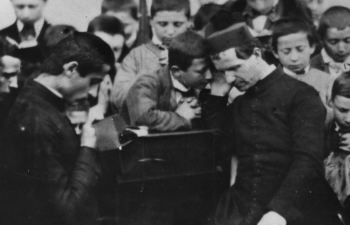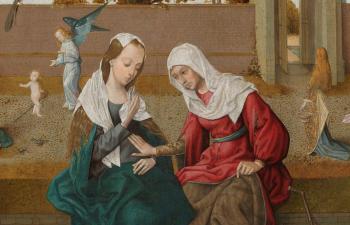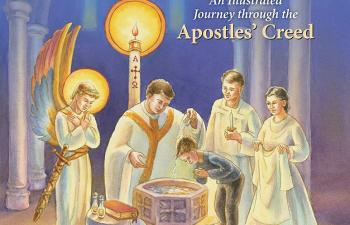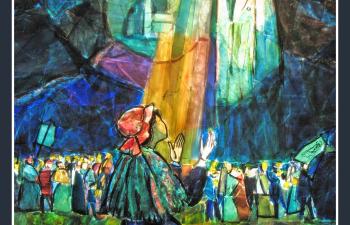C. S. Lewis was a conjurer, whose words evoke the magic of ordinary things, breach the ramparts of rationalism, awaken the appetite for the eternal, and evangelize through the medium of fiction.
Plato’s “allegory of the cave,” as related by Socrates, tells of a group of people imprisoned in a cave since childhood. They have never seen the light of day and so imagine that shadows projected on a wall compose the whole of reality.
The progressive narrowing of thought in the Western world since the Enlightenment has achieved a similar kind of effect, shrinking our horizons and restricting our vision of reality. We could say that this intellectual narrowing has dimmed the memory of our true homeland, or, as philosopher Peter Kreeft describes, it has screwed “down the manhole covers on us so we became squinting underground creatures” instead of eagles capable of soaring towards the sun. Like the cave dweller’s attraction to reality in Plato’s famous allegory, however, the longing for light (which is the desire for the infinite) cannot be fully extinguished. Though buried deeply, it lies dormant and waits for someone to bring it to life.
As with many of our metaphysical troubles, often the path of awakening passes through a baptism of the imagination, the faculty that acts like a router to the deepest recesses of the soul. The art of storytelling is an exquisitely appropriate means to the rehabilitation of our capacity to perceive reality. Stories pique our curiosity and sense of wonder, and they excite our spiritual taste buds. With our souls’ senses heightened, our vision begins to clear and sharpen, and we perceive the magic and mystery that lies beneath the surface of everyday things.
Jesus used stories, symbols, parables, and paradoxes to reveal the “mysteries of the Kingdom.” The Word Incarnate, whose story is “the most tremendous tale of all,” revealed the magic of ordinary things, like seeds, sowers, trees, food, and drink in order to unlock the portals of the imagination and awaken our longing for infinite love and joy.[i] He is the storyteller par excellence and the bearer of Good News from a far-off country, the “happy homeland of the Trinity,” which is our true origin and destiny.
The rest of this online article is available for current Guild members.
This article is from The Catechetical Review (Online Edition ISSN 2379-6324) and may be copied for catechetical purposes only. It may not be reprinted in another published work without the permission of The Catechetical Review by contacting [email protected]



















